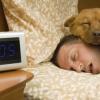REM stage is meaningless without efficient Deep Sleep;
from what I know about Sleep mechanisms and benefits, in REM stage those useless synapses marked by Deep Sleep stage would be purged to make new available space for useful ones.
without Deep/Slow-Wave Sleep, REM sleep would only make you dumber and dumber. that's why brain, naturally, only enters into REM stage after enough amount of Slow Wave Sleep.
If you need to sleep less, you should schedule an efficiently sleep timing instead.
The first complete Sleep Cycle is ~70 mins and Every other complete Sleep Cycle is ~90 minutes.
REM sleep typically occupies 20–25% of total sleep in adult humans: about 90–120 minutes of a night's sleep. The first REM episode occurs about 70 minutes after falling asleep. Cycles of about 90 minutes each follow, with each cycle including a larger proportion of REM sleep.[15]
first of all, you should get some ~7.5hrs sleep, as sleep deprivation causes a lots of REM rebounds.
REM deprivation causes a significant increase in the number of attempts to go into REM stage while asleep. On recovery nights, an individual will most likely move to stage 3 and REM sleep more quickly and experience an REM rebound, which refers to a great increase in the time spent in REM stage over normal levels. These findings are consistent with the idea that REM sleep is biologically necessary.[64][65]
after you've done your REM rebounds, you should sleep for one 70 mins part and 90 mins parts of remaining.
for example: if you only have 4 hrs (240 mins) to sleep, you should only sleep for 160 mins, meaning: 2 complete sleep cycles.
Good luck
Edited by psychejunkie, 29 January 2017 - 08:22 AM.






















































